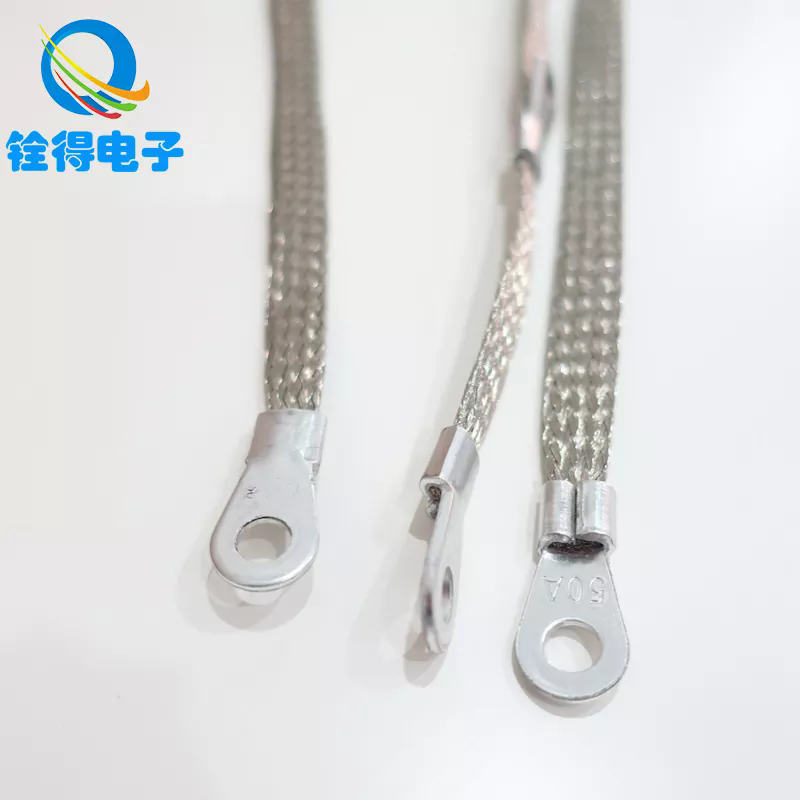How Does Ground Wire Work?
2025-08-19
A ground wire is one of the most essential components in modern electrical systems, yet it is often overlooked by non-professionals. In simple terms, a ground wire provides a safe pathway for electrical current to flow back into the ground during abnormal conditions, such as short circuits, overloads, or lightning strikes. Without this safety feature, electrical faults could result in severe hazards, including fire, shock, or equipment damage.
What is a Ground Wire?
A ground wire is a conductive wire, usually made of copper or aluminum, designed to connect electrical equipment to the earth. Its role is to stabilize voltage levels, protect users from electrical shock, and safeguard sensitive equipment from surges.
In residential, commercial, and industrial electrical systems, ground wires are mandatory in compliance with international electrical codes. They form the backbone of electrical safety, especially in environments where power fluctuations or external disturbances are frequent.
Why Grounding Is Important
-
Safety: Prevents electrocution by directing stray currents away from human contact.
-
Protection: Shields appliances and equipment from damage caused by voltage spikes.
-
Stability: Maintains balanced voltage levels across circuits.
-
Compliance: Meets safety regulations and building code standards worldwide.
How Ground Wire Works in Electrical Systems
The working principle of a ground wire is straightforward yet vital. When electricity flows through a circuit normally, the ground wire remains inactive. However, in the event of a fault—say a live wire comes in contact with metal casing—the ground wire provides a low-resistance path for the current to safely dissipate into the earth.
This process not only reduces the risk of electrical shock but also ensures that protective devices such as fuses or circuit breakers operate effectively. By triggering these devices, the ground wire ensures that the faulty section of the system is cut off quickly, preventing further damage.
Technical Parameters of Ground Wire Products
Our ground wire solutions are manufactured under strict quality standards to meet diverse project needs. Below is a summary of product specifications:
| Parameter | Specification Options |
|---|---|
| Conductor Material | High-purity Copper / Aluminum Alloy |
| Conductor Size Range | 2.5 mm² – 500 mm² |
| Insulation Type | PVC / XLPE / PE |
| Color Coding | Green, Green-Yellow, Bare |
| Resistance | ≤ 0.0175 Ω·mm²/m (Copper standard) |
| Operating Temperature | -40°C to +90°C |
| Compliance Standards | IEC, UL, ISO, RoHS |
| Application Areas | Residential, Commercial, Industrial, Energy Grid |
These parameters ensure that our ground wires deliver reliable conductivity, durability, and compliance with international safety codes. The combination of high-purity conductors and insulation materials guarantees long-term stability even in harsh environments.
Applications and Benefits of Using Ground Wire
Ground wire is not only a regulatory requirement but also a practical necessity across multiple industries.
Where Ground Wire Is Used
-
Residential Buildings: Protecting homes, appliances, and occupants from electrical hazards.
-
Commercial Facilities: Ensuring safe operations of offices, shopping malls, and hospitals.
-
Industrial Plants: Safeguarding heavy machinery and control systems against power surges.
-
Power Grids: Maintaining stability in substations and transmission networks.
-
Renewable Energy Systems: Protecting solar panels, wind turbines, and energy storage units.
Benefits of Reliable Ground Wire
-
Enhanced Safety: Significantly reduces the risk of shock and fire hazards.
-
System Efficiency: Stabilizes voltages for smoother electrical flow.
-
Durability: Resistant to environmental wear and mechanical stress.
-
Cost-Effectiveness: Protects expensive equipment, reducing replacement costs.
-
Sustainability: Eco-compliant materials ensure minimal environmental impact.
Common FAQs About Ground Wire
Q1: What happens if a system does not have a ground wire?
A1: Without a ground wire, stray electrical currents have no safe path to dissipate. This increases the risk of electrocution, equipment damage, and even fires. Protective devices like circuit breakers may also fail to function correctly, leaving the system highly unsafe.
Q2: How do I know what size of ground wire I need?
A2: The required size depends on the load and circuit type. Electrical codes typically dictate minimum conductor sizes based on amperage. For residential use, smaller sizes (e.g., 2.5–6 mm²) may suffice, while industrial applications require larger conductors (up to 500 mm²). Consulting professional guidelines and product specifications is crucial to ensure compliance and safety.
Choosing the Right Ground Wire Supplier
When selecting a ground wire, performance and certification are critical. Inferior materials or improper manufacturing can compromise safety. Buyers should look for:
-
International Certifications (IEC, UL, ISO) for guaranteed compliance.
-
High Conductivity Materials like oxygen-free copper.
-
Durable Insulation that withstands temperature variations and environmental factors.
-
Customization Options for different applications (residential, industrial, renewable).
At Quande, we specialize in providing high-quality ground wire solutions designed for safety, durability, and performance. Our products undergo rigorous testing to ensure compliance with international standards, making them suitable for projects of all sizes.
Whether you are an engineer, contractor, or distributor, our ground wire products deliver unmatched reliability. To learn more about specifications, pricing, and bulk supply options, contact us and discover how Quande can support your next project.
